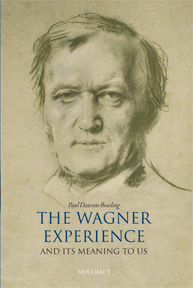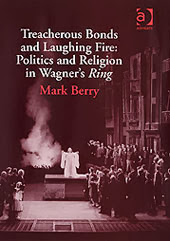For anyone that might have miss it
The Met: Live in HD's 2012-13 Season Features 12 Live Transmissions, Including Seven New Productions (Two of Which Are Met Premieres)
L'Elisir d'Amore -- Gaetano Donizetti -- October 13, 2012
Conductor: Maurizio Benini
Production: Bartlett Sher
Cast: Anna Netrebko (Adina), Matthew Polenzani (Nemorino), Mariusz Kwiecien (Belcore), Ambrogio Maestri (Doctor Dulcamara)
Otello -- Giuseppe Verdi -- October 27, 2012
Conductor: Semyon Bychkov
Production: Elijah Moshinsky
Cast: Renée Fleming (Desdemona), Johan Botha (Otello), Michael Fabiano (Cassio), Falk Struckmann (Iago)
The Tempest -- Thomas Adès -- November 10, 2012
Met Premiere
Conductor: Thomas Adès
Production: Robert Lepage
Cast: Audrey Luna (Ariel), Isabel Leonard (Miranda), Iestyn Davies (Trinculo), Alek Shrader (Ferdinand), Alan Oke (Caliban), William Burden (King of Naples), Toby Spence (Antonio), Simon Keenlyside (Prospero)
La Clemenza di Tito -- Wolfgang Amadeus Mozart -- December 1, 2012
Conductor: Harry Bicket
Production: Jean-Pierre Ponnelle
Cast: Lucy Crowe (Servilia), Barbara Frittoli (Vitellia), Elīna Garanča (Sesto), Kate Lindsey (Annio), Giuseppe Filianoti (Tito)
Un Ballo in Maschera - Giuseppe Verdi -- December 8, 2012
Conductor: Fabio Luisi
Production: David Alden
Cast: Karita Mattila (Amelia), Kathleen Kim (Oscar), Stephanie Blythe (Ulrica), Marcelo Álvarez (Gustavo III), Dmitri Hvorostovsky (Anckarström)
Aida -- Giuseppe Verdi -- December 15, 2012
Conductor: Fabio Luisi
Production: Sonja Frisell
Cast: Liudmyla Monastyrska (Aida), Olga Borodina (Amneris), Roberto Alagna (Radamès), George Gagnidze (Amonasro), Štefan Kocán (Ramfis), Miklós Sebestyén (The King)
Les Troyens -- Hector Berlioz -- January 5, 2013
Conductor: Fabio Luisi
Production: Francesca Zambello
Cast: Deborah Voigt (Cassandra), Susan Graham (Dido), Marcello Giordani (Aeneas), Dwayne Croft (Coroebus), Kwangchul Youn (Narbal)
Maria Stuarda - Gaetano Donizetti -- January 19, 2013
Met Premiere
Conductor: Maurizio Benini
Production: David McVicar
Cast: Joyce DiDonato (Maria Stuarda), Elza van den Heever (Elisabetta), Francesco Meli (Leicester), Joshua Hopkins (Cecil), Matthew Rose (Talbot)
Rigoletto - Giuseppe Verdi -- February 16, 2013
Conductor: Michele Mariotti
Production: Michael Mayer
Cast: Diana Damrau (Gilda), Oksana Volkova (Maddalena), Piotr Beczala (Duke of Mantua), Željko Lučić (Rigoletto),Štefan Kocán (Sparafucile)
Parsifal - Richard Wagner -- March 2, 2013
Conductor: Daniele Gatti
Production: François Girard
Cast: Katarina Dalayman (Kundry), Jonas Kaufmann (Parsifal), Peter Mattei (Amfortas), Evgeny Nikitin (Klingsor), René Pape (Gurnemanz)
Francesca da Rimini -- Riccardo Zandonai -- March 16, 2013
Conductor: Marco Armiliato
Production: Piero Faggioni
Cast: Eva-Maria Westbroek (Francesca), Marcello Giordani (Paolo), Robert Brubaker (Malatestino), Mark Delavan (Gianciotto)
Giulio Cesare - George Frideric Handel -- April 27, 2013
Conductor: Harry Bicket
Production: David McVicar
Cast: Natalie Dessay (Cleopatra), Alice Coote (Sesto), Patricia Bardon (Cornelia), David Daniels (Giulio Cesare), Christophe Dumaux (Tolomeo), Guido Loconsolo (Achilla)
For more information
Website: http://www.metoperafamily.org/metopera/liveinhd/liveinhd1213.aspx?icamp=HD121...
L'Elisir d'Amore -- Gaetano Donizetti -- October 13, 2012
Conductor: Maurizio Benini
Production: Bartlett Sher
Cast: Anna Netrebko (Adina), Matthew Polenzani (Nemorino), Mariusz Kwiecien (Belcore), Ambrogio Maestri (Doctor Dulcamara)
Otello -- Giuseppe Verdi -- October 27, 2012
Conductor: Semyon Bychkov
Production: Elijah Moshinsky
Cast: Renée Fleming (Desdemona), Johan Botha (Otello), Michael Fabiano (Cassio), Falk Struckmann (Iago)
The Tempest -- Thomas Adès -- November 10, 2012
Met Premiere
Conductor: Thomas Adès
Production: Robert Lepage
Cast: Audrey Luna (Ariel), Isabel Leonard (Miranda), Iestyn Davies (Trinculo), Alek Shrader (Ferdinand), Alan Oke (Caliban), William Burden (King of Naples), Toby Spence (Antonio), Simon Keenlyside (Prospero)
La Clemenza di Tito -- Wolfgang Amadeus Mozart -- December 1, 2012
Conductor: Harry Bicket
Production: Jean-Pierre Ponnelle
Cast: Lucy Crowe (Servilia), Barbara Frittoli (Vitellia), Elīna Garanča (Sesto), Kate Lindsey (Annio), Giuseppe Filianoti (Tito)
Un Ballo in Maschera - Giuseppe Verdi -- December 8, 2012
Conductor: Fabio Luisi
Production: David Alden
Cast: Karita Mattila (Amelia), Kathleen Kim (Oscar), Stephanie Blythe (Ulrica), Marcelo Álvarez (Gustavo III), Dmitri Hvorostovsky (Anckarström)
Aida -- Giuseppe Verdi -- December 15, 2012
Conductor: Fabio Luisi
Production: Sonja Frisell
Cast: Liudmyla Monastyrska (Aida), Olga Borodina (Amneris), Roberto Alagna (Radamès), George Gagnidze (Amonasro), Štefan Kocán (Ramfis), Miklós Sebestyén (The King)
Les Troyens -- Hector Berlioz -- January 5, 2013
Conductor: Fabio Luisi
Production: Francesca Zambello
Cast: Deborah Voigt (Cassandra), Susan Graham (Dido), Marcello Giordani (Aeneas), Dwayne Croft (Coroebus), Kwangchul Youn (Narbal)
Maria Stuarda - Gaetano Donizetti -- January 19, 2013
Met Premiere
Conductor: Maurizio Benini
Production: David McVicar
Cast: Joyce DiDonato (Maria Stuarda), Elza van den Heever (Elisabetta), Francesco Meli (Leicester), Joshua Hopkins (Cecil), Matthew Rose (Talbot)
Rigoletto - Giuseppe Verdi -- February 16, 2013
Conductor: Michele Mariotti
Production: Michael Mayer
Cast: Diana Damrau (Gilda), Oksana Volkova (Maddalena), Piotr Beczala (Duke of Mantua), Željko Lučić (Rigoletto),Štefan Kocán (Sparafucile)
Parsifal - Richard Wagner -- March 2, 2013
Conductor: Daniele Gatti
Production: François Girard
Cast: Katarina Dalayman (Kundry), Jonas Kaufmann (Parsifal), Peter Mattei (Amfortas), Evgeny Nikitin (Klingsor), René Pape (Gurnemanz)
Francesca da Rimini -- Riccardo Zandonai -- March 16, 2013
Conductor: Marco Armiliato
Production: Piero Faggioni
Cast: Eva-Maria Westbroek (Francesca), Marcello Giordani (Paolo), Robert Brubaker (Malatestino), Mark Delavan (Gianciotto)
Giulio Cesare - George Frideric Handel -- April 27, 2013
Conductor: Harry Bicket
Production: David McVicar
Cast: Natalie Dessay (Cleopatra), Alice Coote (Sesto), Patricia Bardon (Cornelia), David Daniels (Giulio Cesare), Christophe Dumaux (Tolomeo), Guido Loconsolo (Achilla)
For more information
Website: http://www.metoperafamily.org/metopera/liveinhd/liveinhd1213.aspx?icamp=HD121...
8:28:00 pm | 0
comments | Read More








































